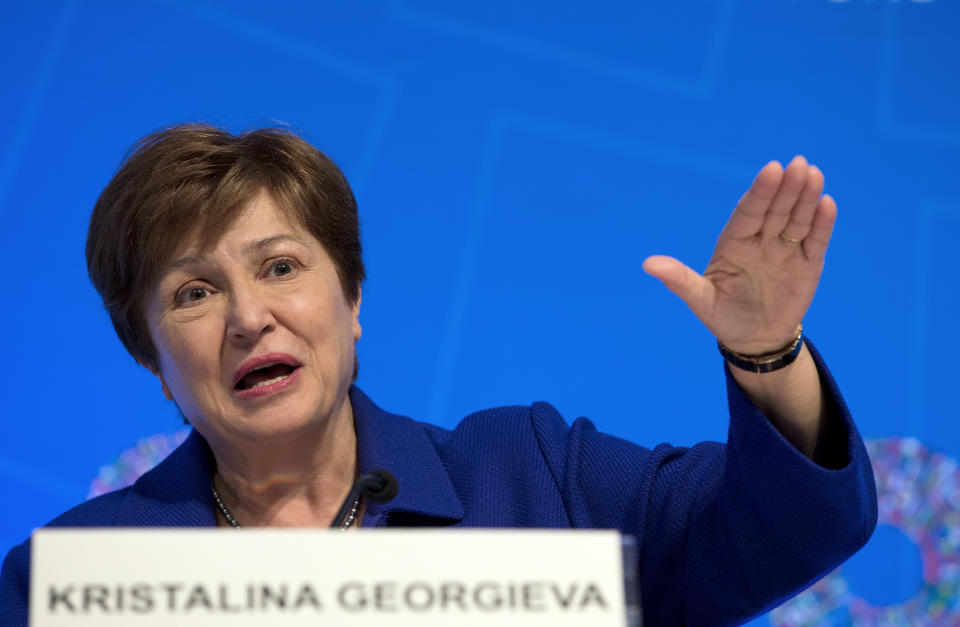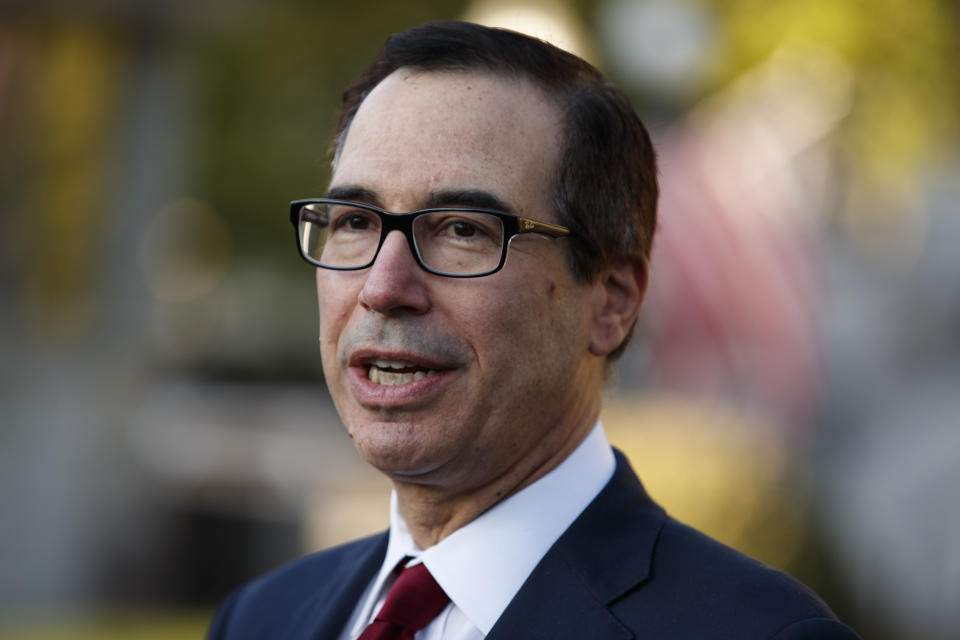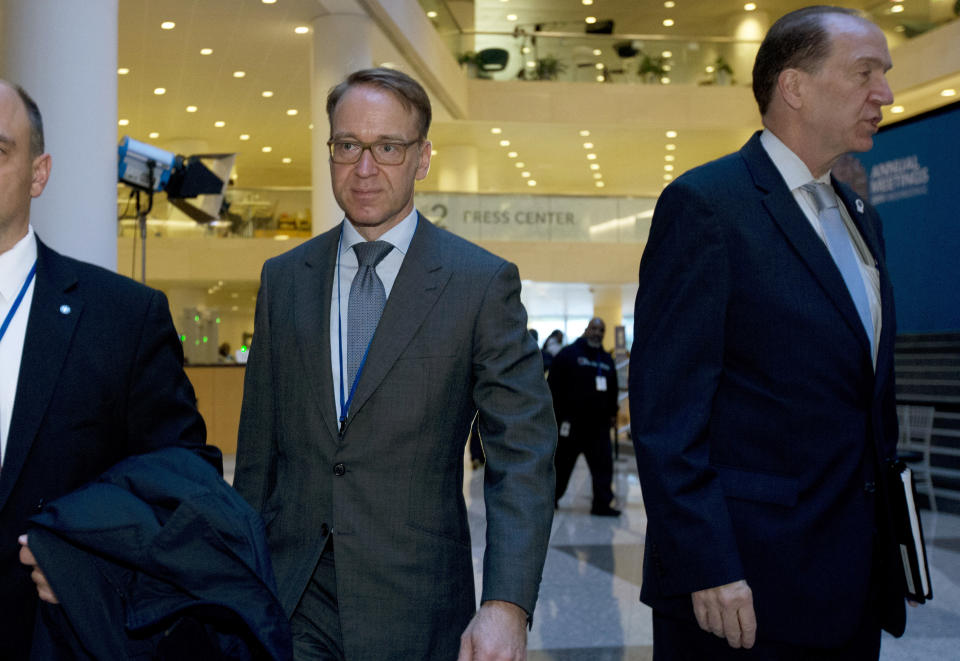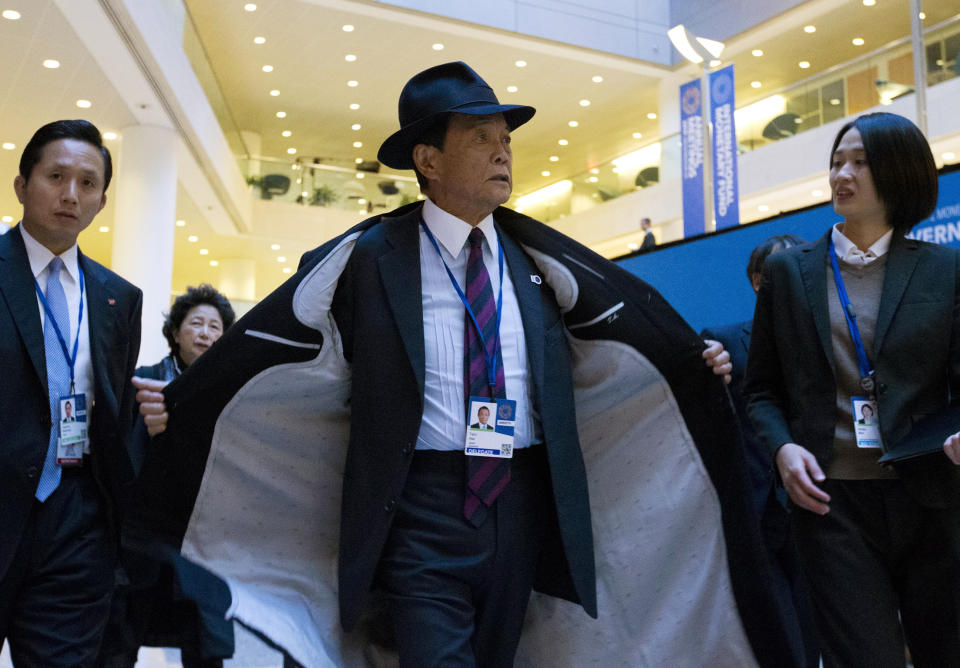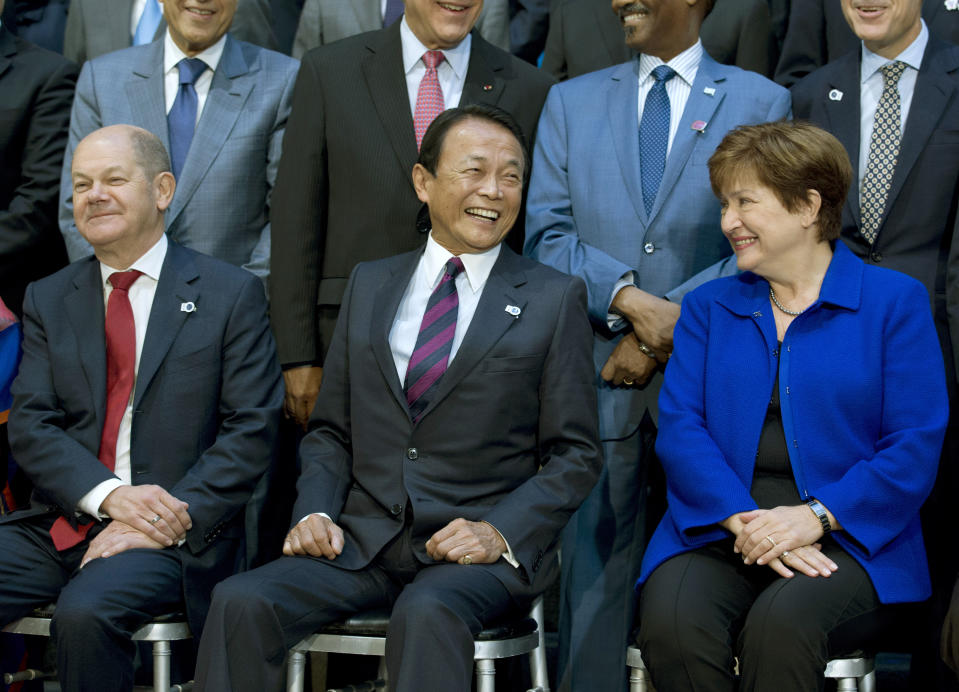WASHINGTON (AP) — Global finance officials wrapped up their fall meetings on Saturday with a pledge to "employ all appropriate tools" to combat the weakest global growth in a decade, but there was little evidence of progress in easing trade tensions, a major source of the slowdown.
The policy-setting committee for the 189-nation International Monetary Fund said in a closing statement that growth should accelerate next year. Officials acknowledged that a range of factors could undermine that forecast, including continued trade fights and increased geopolitical risks.
"We recognize the need to resolve trade tensions and support the necessary reform of the World Trade Organization," the statement said. It did not detail ways to accomplish that.
There was also no sign that discussions on the sidelines of the meetings had produced any breakthrough in the trade disputes initiated by President Donald Trump as part of his get-tough approach to stronger enforcement of U.S. trade laws to lower America's huge trade deficits.
Treasury Secretary Steven Mnuchin, in remarks to the IMF committee, said the administration's goal was to prepare "a foundation for future growth through fairer trade deals."
Mnuchin said negotiations last week between the United States and China, the world's two biggest economies, had achieved "substantial progress" on phase one of a trade deal to resolve the U.S. claims that China is stealing intellectual property.
While Trump suspended a tariff increase on $250 billion of Chinese products that had been scheduled to take effect this past week, few specifics about that agreement have come out. U.S. officials said negotiations to wrap up those details are underway.
The IMF managing director, Kristalina Georgieva, said the threat from trade wars was a chief point of discussion for finance officials.
She said the IMF has estimated that the tariffs already imposed or threatened could shave 0.8% off global growth by the end of next year. Much of that stems from the fallout on business confidence.
In trade wars, "everybody loses," she said. "Policymakers ought to take very seriously their obligations to international cooperation in trade."
The World Bank's president, David Malpass, said this week's finance discussions had focused on how to address multiple challenges.
"Growth is slowing, investment is sluggish, manufacturing activity is soft and trade is weakening," he said. "Climate change and fragility are making poor countries more vulnerable."



